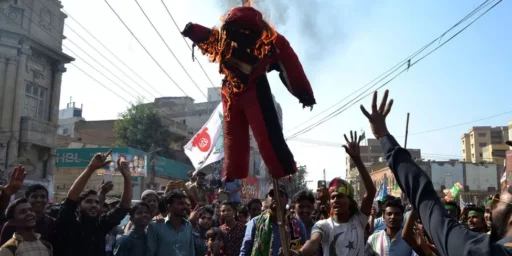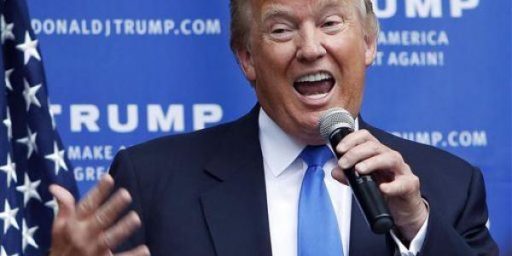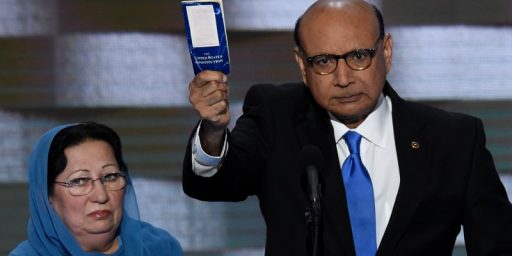Former Pakistani President To Stand Trial For Treason
Former Pakistani President Pervez Musharraf will stand trial for treason:
Pakistan’s government plans to put former President Pervez Musharraf on trial for treason for declaring a state of emergency and suspending the constitution while in power, the interior minister said Sunday.
Musharraf, a former army chief, would be the first military ruler tried for treason in a country that has experienced three military coups in its 66-year history. He could face the death penalty or life in prison if he is convicted of treason, but some question whether the country’s powerful army actually will let that happen. Musharraf has maintained his innocence.
The government plans to send a letter to the Supreme Court on Monday asking that treason proceedings begin under Article 6 of the constitution, Interior Minister Chaudhry Nisar Ali Khan said during a news conference. The government made its decision after an investigating committee formed under the direction of the Supreme Court collected enough evidence for a trial, Khan said.
“Gen. Musharraf is accountable to the nation and the constitution,” Khan said.
He specifically mentioned Musharraf’s decision to suspend senior judges, including the chief justice of the Supreme Court, and detain them after he declared a state of emergency on Nov. 3, 2007. He was apparently concerned they would challenge his re-election as president.
“The constitution was ruined and violated,” Khan said. “The judiciary was humiliated. Judges were manhandled physically, confined along with family and children.”
One of Musharraf’s spokesmen, Raza Bokhari, lashed out at the government’s decision, saying it was a swipe at the army.
“We not only forcefully reject these charges, but also view them as a vicious attempt to undermine the Pakistan military,” Bokhari said in a statement. “It is also a botched attempt by the government to temporarily take the focus away from existential threats faced by Pakistan.”
The interior minister said that the government’s decision to put the former president on trial for treason was not a personal vendetta by Prime Minister Nawaz Sharif, who was toppled in a military coup by Musharraf in 1999.
The government didn’t indicate it would press charges against Musharraf for his coup, perhaps because the move was retroactively approved by the Supreme Court and parliament at the time.
This is only the latest legal move against Musharraf since he voluntarily returned to Pakistan, a move he is likely regretting at this point.






We shall see. As in Egypt, the Army holds most of the cards in Pakistan. How the current state handles the military in prosecuting one of its former leaders will be interesting. It’s not beyond imagination that there could be another coup if this continues and Musharraf is convicted and sentenced. The military does not like to be humiliated by politicians.
I suppose Americans think of Gen Musharaf through the lens of the close relationship that President GW Bush had with him (even though in ’99 he failed a reporters ‘pop quiz’ by not knowing 3 of 4 national leaders, one of whom was Gen Musharaf who’d just staged a coup in Pakistan). Mr Bush “lavished” the General “with political and economic benefits…despite policies that were in sharp contrast with US security interests…. (T)he Pakistani military was deeply compromised by it’s relationship with the Taliban and Pakistani Islamic militants.” (Asia Times 21Aug 2008)
Those two together ‘allowed’ Dr A Q Khan to open a clandestine market in nuclear technology that allowed the Kim regime in North Korea to become a nuclear power. (WaPo 6Jul 2011)
And it must be a really sinking feeling to be tried for a capital crime like treason and face a judge who you had sacked and possibly imprisoned.